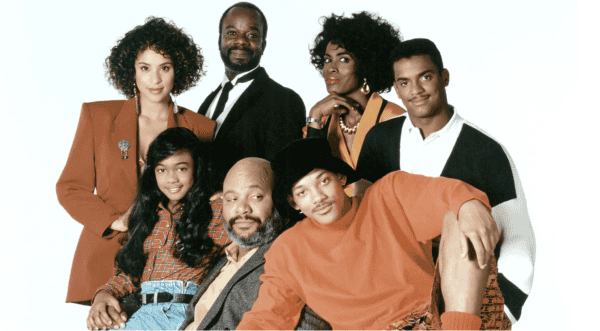
On this day in 1990, television and hip hop culture collided in a way that changed both forever. NBC premiered The Fresh Prince of Bel-Air, the sitcom that not only launched Will Smith from chart-topping rapper to global superstar but also broke ground as one of the most beloved and culturally resonant shows of the 1990s.
The show followed a fictionalized version of Smith, a West Philadelphia teenager who moves in with his wealthy relatives in the exclusive Bel-Air neighborhood of Los Angeles. Beyond the laughs and memorable catchphrases, the series tackled issues of race, class, family, and identity in a way that spoke to both mainstream audiences and hip hop’s core fans.
Will Smith, then best known as half of DJ Jazzy Jeff & The Fresh Prince, quickly became a household name. The chemistry between Smith and his castmates;James Avery as the authoritative Uncle Phil, Alfonso Ribeiro as the preppy Carlton, Tatyana Ali as Ashley, Karyn Parsons as Hilary, and of course DJ Jazzy Jeff himself — turned the show into an instant classic. Avery’s performance in particular gave the show its emotional anchor, blending tough love with compassion.
Over its six-season run, The Fresh Prince of Bel-Air not only boosted Smith’s acting career but also played a major role in bringing hip hop culture into millions of American living rooms each week. From its iconic theme song to unforgettable episodes like Carlton’s Tom Jones dance or the emotional scene when Will asks, “How come he don’t want me, man?”, the show cemented itself as part of the cultural fabric.
Thirty-five years later, the series continues to live on through reruns, streaming platforms, and the more dramatic Peacock reboot, Bel-Air. But for a generation of fans, the original Fresh Prince remains a timeless reminder of hip hop’s influence on television and the enduring power of stories that make us laugh, think, and feel.
